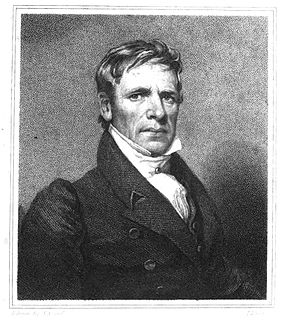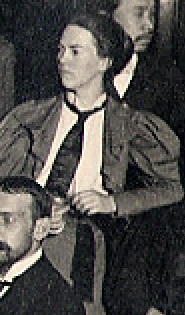The Tanner scale is a scale of physical development in children, adolescents and adults. The scale defines physical measurements of development based on external primary and secondary sex characteristics, such as the size of the breasts, genitals, testicular volume and development of pubic hair. This scale was first identified in 1969 by James Tanner, a British pediatrician, after a two-decade-long study following the physical changes in girls undergoing puberty.

James Mourilyan Tanner, FRCPsych, FRCP was a British paediatric endocrinologist who was best known for his development of the Tanner scale, which measures the stages of sexual development during puberty. He was a professor emeritus of the Institute of Child Health at the University of London.

Henry Ossawa Tanner was an American artist and the first African-American painter to gain international acclaim. Tanner moved to Paris, France, in 1891 to study, and continued to live there after being accepted in French artistic circles. His painting entitled Daniel in the Lions' Den was accepted into the 1896 Salon, the official art exhibition of the Académie des Beaux-Arts in Paris.

William ("Bill") Tanner is a fictional character in the James Bond film and novel series. Tanner is an employee of the Secret Intelligence Service (MI6) who acts as M's Chief of Staff.

The Parliament of Scotland was the legislature of the Kingdom of Scotland. The parliament, like other such institutions, evolved during the Middle Ages from the king's council of bishops and earls. It is first identifiable as a parliament in 1235, during the reign of Alexander II, when it was described as a "colloquium" and already possessed a political and judicial role. By the early fourteenth century, the attendance of knights and freeholders had become important, and from 1326 commissioners from the burghs attended. Consisting of the "three estates" of clergy, nobility and the burghs sitting in a single chamber, the parliament gave consent for the raising of taxation and played an important role in the administration of justice, foreign policy, war, and all manner of other legislation. Parliamentary business was also carried out by "sister" institutions, such as General Councils or Convention of Estates. These could carry out much business also dealt with by parliament – taxation, legislation and policy-making – but lacked the ultimate authority of a full parliament.

John Tanner, known also by his Ojibwe name Shaw-shaw-wa-ne-ba-se, was captured by Ojibwe Indians as a child after his family had homesteaded on the Ohio River in present-day Kentucky. He grew up with the Ojibwe nation, becoming fully acculturated and learning the Saulteaux language. He married an Indian woman, served as a guide for European fur traders, and worked as an interpreter. His story of life with the American Indians was published in 1830. Titled A Narrative of the Captivity and Adventures of John Tanner..., it was a popular success and remains an important historical record.
James Tanner is an English chef and television personality, best known for co-owning the Tanners Restaurant in Plymouth and cooking on various TV programmes.
A dark horse is a political candidate who is nominated unexpectedly; or an underdog in other fields who achieved unprecented success.

The Lafayette River, earlier known as Tanner's Creek, is a 6.2-mile-long (10.0 km) tidal estuary which empties into the Elizabeth River just south of Sewell's Point near its mouth at Hampton Roads, which in turn empties into the southern end of Chesapeake Bay in southeast Virginia in the United States. It is entirely located in the city of Norfolk.
Robin Hood and the Tanner is Child ballad 126. It is a late seventeenth-century English broadside ballad and one of several ballads about the medieval folk hero Robin Hood that form part of the Child ballad collection, which is one of the most comprehensive collections of traditional English ballads.
King Edward the Fourth and a Tanner of Tamworth is a ballad first found in the Child Ballad collection, number 273. A ballad of this title was licensed in 1564. Versions of this ballad also exist outside the Child collection. Additional copies can be found at the British Library, the University of Glasgow Library, and the Pepys Library at Magdalene College. These ballads dates, by estimation of the English Short Title Catalogue, range from the early seventeenth century to as late as 1775. The ballad is most recognized by its opening line: "In summer time, when leaves grow green." Child describes the appeal of this ballad to be centered on the chance meeting with a King, which is also a recurring theme in tales of Robin Hood.
William Tanner may refer to:
Tanner may be a surname of either English, German or Finnish origin. The Anglo-saxon Tanner was an occupational surname while the German form, also spelled Danner, is likely topographic from German 'tan', meaning forest. In the Finnish language surname the word 'tanner' is a synonym for field or ground.
Ozaawindib (Ojibwe) was an early 19th century male-bodied ayaakwe / agokwa warrior who had several husbands and was in other ways gender-nonconforming.
John Sears Tanner is the 10th and current president of Brigham Young University-Hawaii (BYU-Hawaii). He previously served as first counselor in the General Sunday School Presidency of The Church of Jesus Christ of Latter-day Saints, as president of the church's Brazil São Paulo South Mission and as Academic Vice President of Brigham Young University (BYU). Tanner is married to Susan W. Tanner, a former general president of the LDS Church's Young Women organization.

Flesh and the Spur is a 1956 Western film directed by Edward L. Cahn. The movie stars John Agar as Lucius Random, Marla English as Wild Willow and Mike Connors as Stacy Tanner. The film was released by American International Pictures as a double feature with Naked Paradise. The plot is about a young cowboy who searches for the killer of his twin brother.

James R. Tanner was an American soldier and civil servant. He is best known for having lost both his legs below the knee at the Second Battle of Bull Run. Serving during the rest of the war as a government stenographer, he was present at the death of Abraham Lincoln and took notes that are the most comprehensive record of the events of the President's assassination. He later served as the United States Commissioner of Pensions, and helped reorganize and incorporate the American Red Cross.

The Book of Mormon is a sacred text of the Latter Day Saint movement, which adherents believe contains writings of ancient prophets who lived on the American continent from approximately 2200 BC to AD 421. It was first published in March 1830 by Joseph Smith as The Book of Mormon: An Account Written by the Hand of Mormon upon Plates Taken from the Plates of Nephi, who claimed that it had been written in otherwise unknown characters referred to as "reformed Egyptian" engraved on golden plates. Contemporary followers of the Latter Day Saint movement typically regard the text primarily as scripture, but also as a historical record of God's dealings with the ancient inhabitants of the Americas.
Paul Antony Tanner, was a British literary critic of the mid-20th century, and a pioneering figure in the study of American literature. He was a fellow of King's College, Cambridge, where he taught and studied for 38 years, from 1960 until his death in 1998.

Amy Eliza Tanner was an American psychologist.









